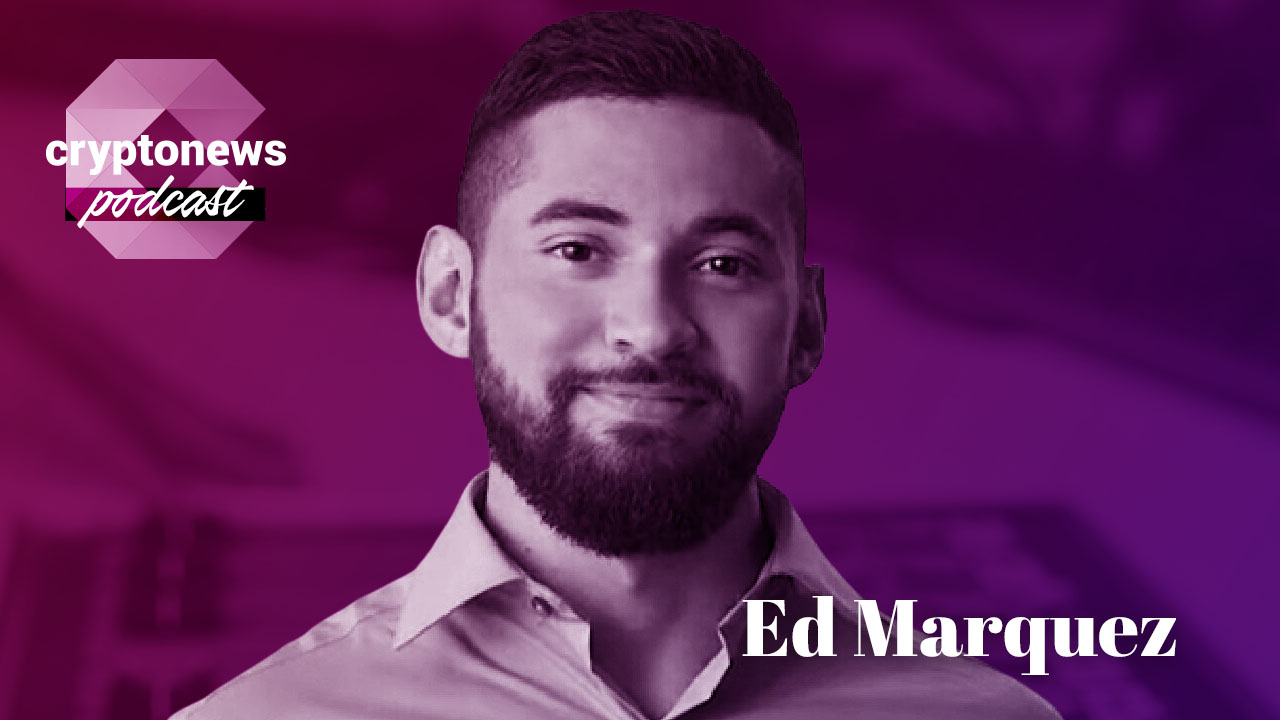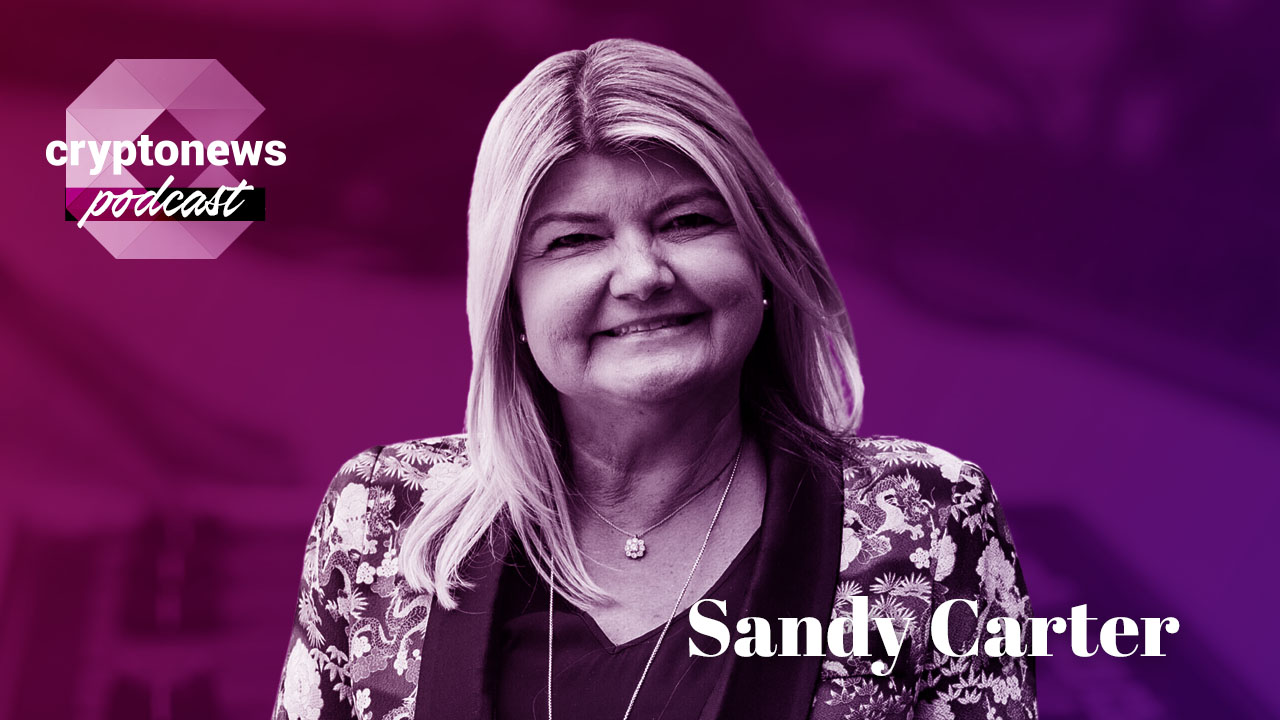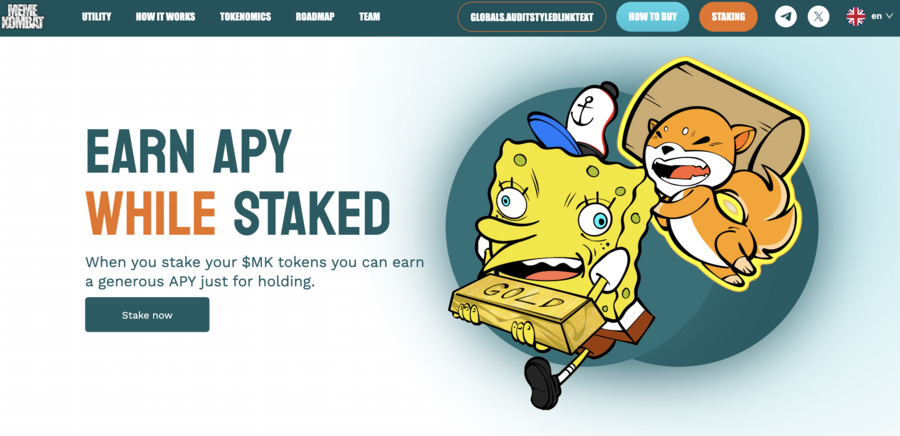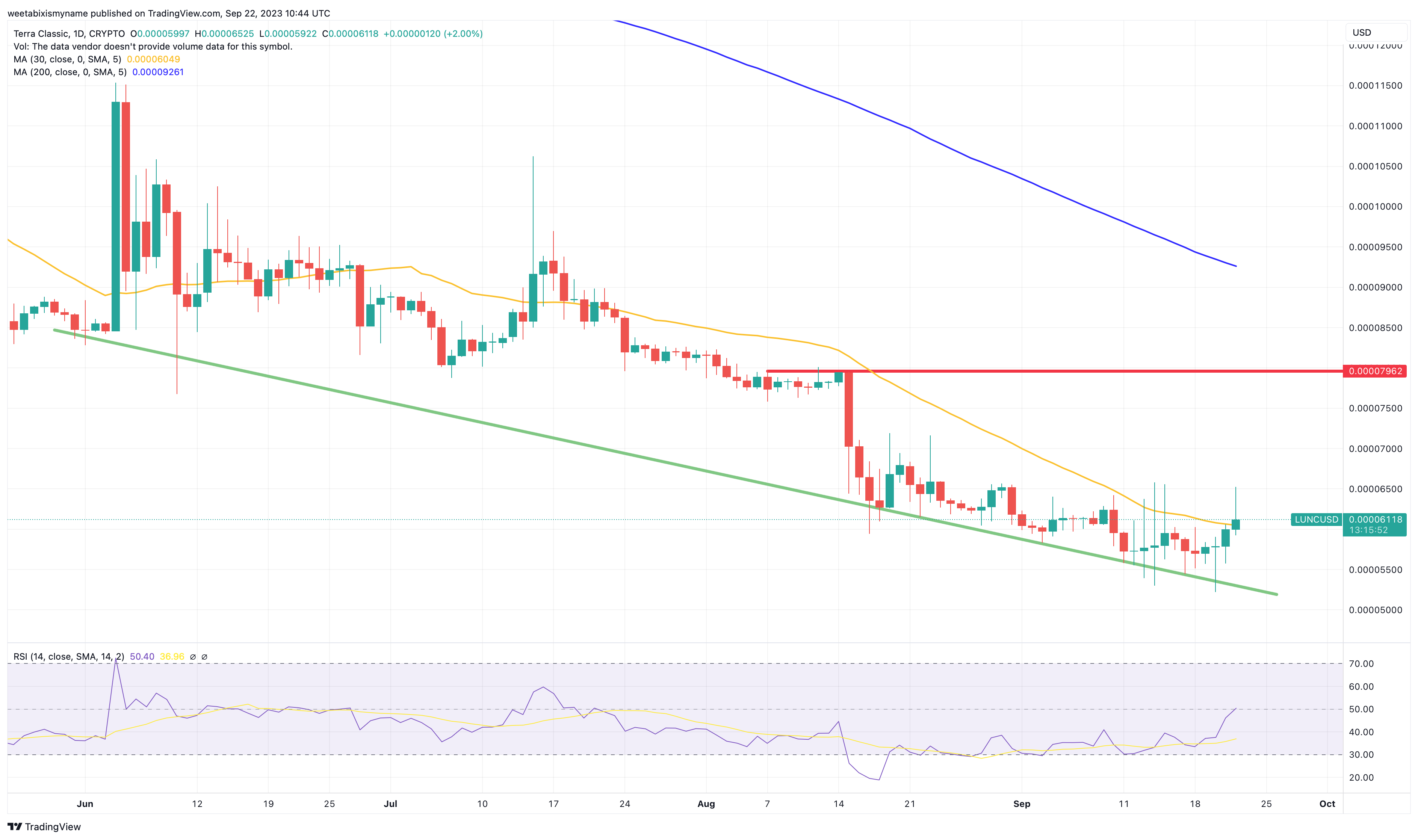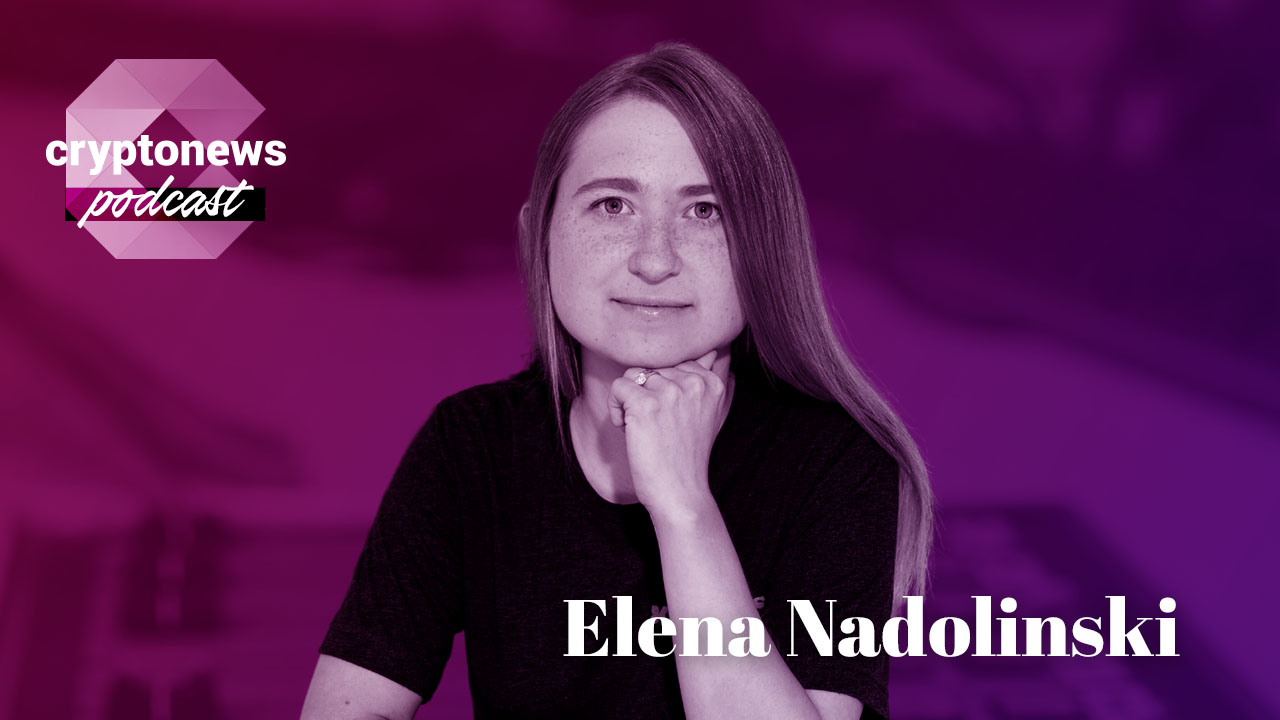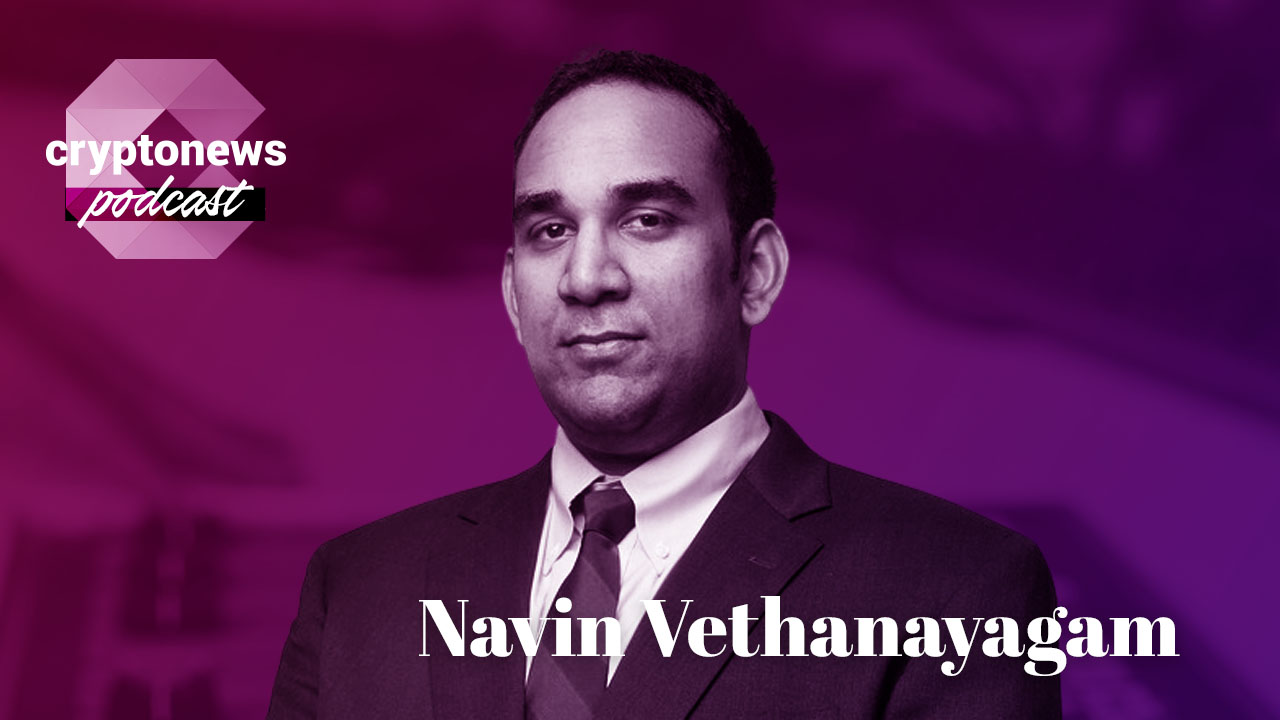Arno Bauer, Senior Solution Architect at BNB Chain, on opBNB, Ethereum Killers, L1s, L2s, and Bitcoin | Ep. 267
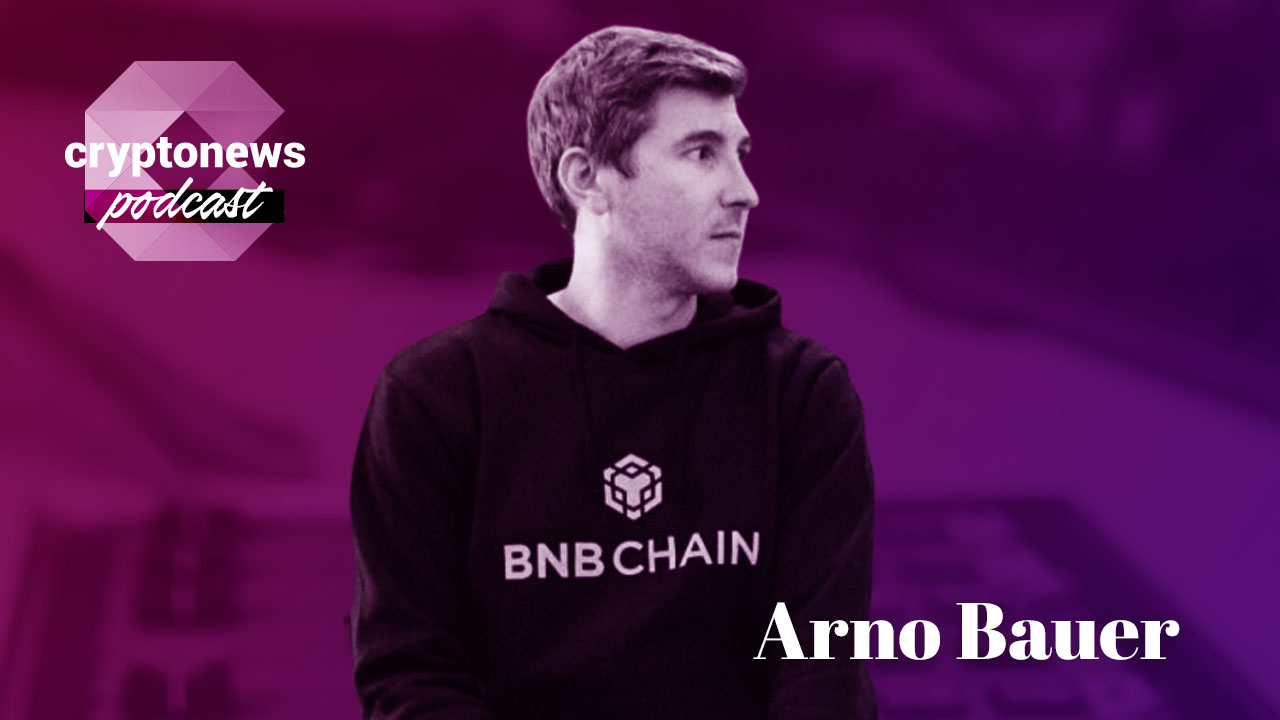
In an exclusive interview with cryptonews.com, Arno Bauer, Senior Solution Architect at BNB Chain, talks about BNB’s new layer-2 testnet called opBNB, how Greenfield is a leader in programmable storage, and the current outlook on L1s & L2s.
About Arno Bauer
Arno Bauer, Senior Solution Architect at BNB Chain. With over a decade in Data Management across diverse international environments, Arno focuses on enhancing business operations through the research and application of innovative technologies. Here, he specializes in enhancing the core blockchain landscape of the BNB ecosystem and helping its growth through innovation, particularly focusing on governance model enhancements.
Arno is deeply attracted to transformative technologies, especially when applied to human science. His journey to blockchain was sparked by his fascination with new technologies and the potential of blockchain to revolutionize various industries. After studying the fundamentals and business applications of this technology through various opportunities, he enjoys contributing to a field that has the potential to significantly impact society.
Arno Bauer gave a wide-ranging exclusive interview, which you can see below, and we are happy for you to use it for publication, provided there is a credit to www.cryptonews.com.
Highlights Of The Interview
- BNB launched a new layer-2 testnet called opBNB
- How opBNB will impact developers -- the benefits, the future, etc.
- A look back at the past 3 years of BNB Chain and the Web3 ecosystem and what's to come
- How Greenfield is a leader in programmable storage
- Overwhelmed by the multiple blockchain layer-1 and layer-2 options available to choose from



Full Transcript Of The Interview
Matt Zahab
Ladies and gentlemen, welcome back to the Cryptonews Podcast. It's your host, Matt Zahab. We are buzzing as always lovely day in the city, even better day to record a pod with the one and only Arno Bauer, Senior Solution Architect at BNB Chain, who has over a decade of experience in data management across diverse international environments. Arno focuses on enhancing business operations through the research and application of innovative technologies. At BNB Chain, he specializes in enhancing the core blockchain landscape of the BNB ecosystem and helping its growth through innovation, particularly focused on governance model enhancements. Arno, it's been a minute. We've been rescheduling this for what it seems like years, but we finally got you on, pumped to have you on my friend. How you doing?
Arno Bauer
Doing great. Thanks for the time to them. We look forward to and discussing about what's happening right now in the BNB Chain and in the whole crypto world as well.
Matt Zahab
I love that. We did indeed have quite the digital game of tag trying to get each other on the pod here. And we finally did it and I love that. You guys have some huge news. We are recording on mid September. This episode will release around September 21st. And a couple of days ago, you guys launched Mainnet for opBNB, which is huge news. We'll get into that. But before we do, give the listeners what they want. Tell them a little bit about yourself. Obviously, you are working at BNB chain, which is the Binance related actual chain. Binance is in the news 24/7 for mostly good, but some bad. One of the biggest, if not the biggest companies in crypto. We love to see that. Tell me about your past. What did you do before you got into crypto and why did you make the jump to Big Bad Web3?
Arno Bauer
Sure. I mean, it's a good question. We all have our story on why we jumped into crypto and how we jumped into it as well. I mean, initially, I was mostly working with databases. So that's when you mentioned this one, like I developed a history into data management. So I was always kind of passionate about how to handle data, how to make them more secure, more reliable. And this is where I naturally jumped into blockchain because at the end, blockchain is just a specific ledger which is really here to store data and to make it like resilient. And let's see, proof against any attack as well. So this is what reattracted me back in the days. I joined like most in 2016, 2017. So this is when I started jumping into more into the technical aspect of it. And when I started really working on it, I come at a daily basis. So it's been like a good journey, so far for me, like really being able to run one or the other. It's the core aspect of why we have as well those decentralized ledger, all the consensus is playing a role within the security as well, the resilience against censorship, potentiality as well. So this is what I'm really looking forward to, try to contribute as well. And this is why I joined like recently, BNB Chain, really focused more on how we can, knowing that BNB Chain is one of the mostly, let's say used L1, in terms of daily active users, like how we can really secure those data that is transiting as well and making sure that people want. Let's say using Web3, we can let an edge against application of which our own Web2 was sometimes, it's hard to justify why we own Web3 and on the cost it as well when you want to run transactions. Even if we're in the BSC network, it's kind of low versus other L1s, but still it's the expensive to run, so the use cases need to really be like, we need to justify the use of like this technology as well and why we need to have like a decentralized database, decentralized validator, like censorship resistance as well. So all those different problematic and one data and something that we attracted me into the space.
Matt Zahab
Besides what you just mentioned, what else about crypto got you going? What's your inception story? Was it a friend who bought Bitcoin and got you into it? Was it a book you read, an article? What got you into crypto as a whole?
Arno Bauer
So, you know, it was hosted by community. I was so at that time I was living in China, in Shanghai mainly. So it was more about like the community that was as well around that time. So we had a lot of discussion about AI, about blockchain as well. So I was hanging up to a lot of different events trying to get more knowledge myself about these different, let's say new technology. And this is what I really like. Let's say ticked on me that here this is definitely let's say the next, I don't want to see it as a way but then it's evolution of data as well. We had like books in the day, like, or even like at Cedar Rocks or people when the music is growing on the mountain or like when they had caves. And then we had books now, we had like internet, like if you wanted the computers, like their own storage, then they had like cloud solutions. And I think it's more like a standard evolution of all those different architecture. And this is where we are at Web3. I think Bitcoin was really a great example of how decentralized nature can work out. It was like before Bitcoin, they had a lot of trial and errors while in this specific industry of like people trying to find out how we can then decentralize storage network which are resilient, which is not something that is easy to build. And I think that Bitcoin really was the first one to really be able to handle all those complexity around those entire storage, privacy and security. And definitely like the utilization of let's say proof of stake, it's something that is helping on that adoption of blockchain technology because it's easier for some people to easily jump on top of it and participate to a network as well. So it's a cost of entry and might be a bit easier to scope of stake. So it's interesting that we are seeing so many consensus ideations. to them as well.
Matt Zahab
It's a great point there. The number of choices you have in regards to building on multiple Layer-1s and Layer-2s, it's becoming crazy. And I mean, this is a perfect segue into opBNB. But before we get into that, I'd love if you could give our listeners and myself just a quick primer of BNB. A lot of people confuse BNB Chain with Binance, obviously same same but different. I'll let you explain this. Please give us the TLDR on what exactly BNB chain is and then we'll get into some of the fun stuff.
Arno Bauer
I mean, back in the days, we first had like the beacon chain, which was like Binance creating, we created this beacon chain, which was more like a blockchain for decentralized, that's it, finance trust that they basically and then they created like Binance Smart Chain, which was more like the smart layer on top of it, like the BNB Chain that we know today, which was even compatible. But then of course, naturally, like, it's kind of split. So now like the BNB ecosystem is really in dependent and is not leading to violence anymore. So the city is more like, say, two, three years ago that this separation will like took place. So now it's really two different entity were balances with infocusing on a centralized exchange and BNB ecosystem is really on its own, trying to build tools like Layer-1, which is like the BSC, which is the BNB Smart Chain that we have opBNB, which is more like the skittables rich on top of it. Then we have currently BNB Grinchfield as well in development, which is more at the Decentralized Storage Network, which is still connected and which is having an 18 integration with BSC. So having programmability on top of data as well. So BNB ecosystem is quite diverse, but it's really like a different put it's quite separated from Binance in a way if I can say so. But definitely the name might still be confused for some people especially that net history was called like Binance Smart Chain. So if you just say BSC, people tend to think of it, but now it's more like BNB Smart Chain.
Matt Zahab
Yeah, it's tough. Cause again, with such a prominent name in the space, like Binance, it's like you automatically just sort of pair the two together, right? I mean, they're both, it's comparing apples and oranges both through, but definitely on apples to apples. So very interesting stuff. Before we get into opBNB and again, everything OP related is massive right now, obviously cutting the transaction costs on L2s, more efficiency, more speed. It's just, it seems like a no brainer through and through on all ends of the spectrum. But before that, just give me a quick sort of outlook on what you and the team have done over the last three years. Cause I think you're a guest number two or three from BNB coming on the pod. You guys always have so much stuff to offer, some great alpha and so much news always moving and grooving. So in your last couple of years at BNB, or at least just BNB as a whole, what exactly has gone on in the last three years? And we can then get into some of the future stuff as well.
Arno Bauer
So I think one of them really like let's say focus on the BNB like side initially was really provide a strong and reliable infrastructure, which means like that's why that's one of the reasons why that's the number of value data might not be as large as other chain initially, because the focus was really on providing something which with high throughputs and really something that is reliable. So let's say the capacity of the BNB Smart Chain is four or five times higher than the one on it. So it's something that is quite drastically like enhanced versus that's a quarter L1 way like and this is where we saw as well the boom during DeFi where like we get a lot of transactions happening because for people, I mean, if you want to do a swap of let's say 50 or 100 USD, you don't want to pay like 200 USD in fees, you know, and it's what it's nature like right now on ETH, but it's actually like for the use cases and for people, it was not usable like that. So this is where like BNB Smart Chain was really the home for those like users and those retail users who had the possibility to interact on-chain with the low cost and especially the high throughput, which means that the finality was here as well. So like whenever you sign the transaction, some get reverted because the gas fee was not set correctly or like then you need to increase the fee, send it again, but meanwhile we're still using some ETH polls or so like on the BNB chain, like due to this high throughput, the capacity were like increased drastically and like the transaction look like it's affordable for most of the people. So it's something that you worked heavily on it or delivered as well heavily on trying to provide more resilience of the network itself, which means that being increased drastically as well don't know what value nature. It doesn't seem a lot versus order, but it's still like a lot like when you in terms of percentage for example of increase and as well in terms of let's say providing more consensus updates in order to provide what we call the fast finality because as you know, for example on Bitcoin, like whenever you send a transaction, you need to wait once it's in a block. So first you need to be lucky to be in a block if the transaction is increased recently. Like thank God we have more activity as well right now, which I'm quite happy with because it's showing that there's a utility as well. So definitely like once it's validated, you still need to wait like six, seven or eight blocks usually to have the true finality or that's what usually exchanges are waiting for before you can really like trade it on an exchange like when you're sending or withdrawing Bitcoin. On it, it's still like you need to wait as well but now on the BSC, with this new fast finality consensus that you've updated, you need to wait between three and four blocks, which is for example between eight and ten seconds, which is something that is really fast for in the more finality. So it's something that can drastically like increase the usability and the experience of the usability of our AR1 and now we are trying to focus more on expanding and connecting from those capabilities how we can even extend further with opBNB that we discussed earlier and with BNB Queenfield as well that we're going to discuss further. So now that we have a strong base foundation, that is like how we're trying to connect to it and try to expand it as well. It's kind of a universe, like it's not stopping at one and it's like growing and growing.
Matt Zahab
It's truly an ecosystem. That was very well described. Thank you for that. And obviously congrats to you and the team. Huge launch, smooth as usual, as per anything, Binance and BNB related. You guys processed more than 35 million transactions on chain and have deployed over 150 decentralized applications on Testnet. opBNB is officially launched, moving to Layer-2 for the main reasons of alleviating congestion, reducing transaction costs, with an average fee of 0.005 cents, considerably cheaper than other chains. This is huge. Was this just a no brainer by the team to be like, hey, our community, our users want something cheaper, more efficient, quicker, the whole nine yards, and you guys were like, okay, it's time, build it out, launch it? Like OP that has blown up, obviously Coinbase related, did that have anything to do with that? Were you guys looking at them and being like, wow, look at the growth and trajectory and potential, the ceiling they have there, how much good conversation is happening in regards to OP? Was this like, okay, we got to do the same? Like what was the whole rationale behind launching opBNB?
Arno Bauer
And we had experience and congestion today, for example, on the L1. So it's not something that was necessarily due right now due to congestion. But it was more like the overall community developer were discussing about it, like having a lot of feedback on projects as well, which are running on top of BSC. Having positional right now is the kind of abstraction or other project as well. It's a sponsorizing transaction on behalf of the user. So of course, as a project, the more you grow. And if you are a sponsorizing, let's say, the fee for your user, it's having a higher cost as well for you to run, for example, in game or you specifically like social data. So we had a lot to say that community developer, which we discussed a lot about which problematic of like, sure, we are not having congestion today. We are not so expansive today, but we still have a struggle to on board more people because the more people on board, the higher the cost will be for us. So we need to get ready and be prepared as well, like before we have a new wave of user coming. And then like the community of the developer really started looking as well. What's happening on the ZK event, on the ZK side, on the OP side. And definitely I would say that the OP stack was opBNB based. The OP stack as well. So we like huge congrats to OP stack for delivering what they delivered. But it's something that is really, it's a replying to a lot of questions that that currency industry has and OP stack is really able to answer most of them. So first of all, it's EVM compatible, as you know. So it's like, it's great for developers and builders. They can easily like redeploy on the Layer-2 and be more scalable as well. Or deploy even their own, let's say, fork of OP stack and have their own Layer-2 for their own users. So there's a lot of, let's say, added value to utilizing search and decentralized and community driven solution as OP stack and like EVM compatible. So this is one of the reasons we decided to build on top of it as well. Because it's like really like something that we believe right now is the go to solution when we are talking about scalability and higher throughput as well for community.
Matt Zahab
I agree. Which of the sort of main three being speed, transaction, and efficiency of those three things, what did the community ask for the most? Because I always wonder, for me, again, it depends on what transaction I'm using. It's very nuanced. It's very subjective, but I feel like anything else in life, price, finances, money, freedom, all synonymous, whatever you want to call it. I find like that usually is the number one reasoning, but was there one that outweighed the others in regards to, you know, actually launching this and making it happen? But was there one value prop that the community really kept asking for?
Arno Bauer
The takeout stays more efficient, which means efficiency in forecasting as well, the cost of using it. You know, usually on L1, there is a lot of variation in like transaction piece as well. So usually the more activity, the more like increasingly you have. So having that system seen that it's more efficient, then we're like, okay, we know that there's going to be a block every one second because of the BNBs, like a block every second. There is this specific gas thing that we know that based on the current that's in on chain activity, the price is quite fixed. So there is no extra fluctuation in price as well on opBNB versus let's say other L2 on ETH. So it's more like the efficiency of like being able to forecast, for example, for project, the cost of running or for a retail user to forecast, okay, if I want to do a hundred transactions per day for the next six months, I can already kind of understand what's going to be the cost today, but what's going to be the cost in six months as well. Because that's more like a late efficiency on that site, when you're able to have a stable infrastructure in terms of like throughput and in terms of costs of running as well.
Matt Zahab
Interesting. Really good points there. Arno, we're gonna take a quick break and give a huge shout out to our sponsor of the show PrimeXBT. And when we get back, we are going to discuss Ethereum killers, the present day summary-ish of L1s and L2s, and how Greenfield is a leader in programmable storage. But until then, huge shout out to PrimeXBT. We love the team at PrimeXBT, longtime friends of cryptonews.com and longtime sponsors of the Cryptonews Podcast. PrimeXBT offers a robust trading system for both beginners and professional traders. It doesn't matter if you're a rookie or a vet, you can easily design and customize your layouts and widgets to best fit your trading style. PrimeXBT is also running an exclusive promotion for listeners of the Cryptonews Podcast. After making your first deposit, 50% that is 50% of that first deposit will be credited to your account as a bonus that can be used as additional collateral to open positions. The promo code is CRYPTONEWS50, that's CRYPTONEWS50, all one word to receive 50% of your deposit credited to your trading account. Again that is CRYPTONEWS50, to receive 50% of your deposit credited to your trading account. Now back to the show with Arno. Mate, let's jump into Greenfield. Candidly, I honestly didn't even know this was a thing until I started doing research for the show. And this is one of the things I love about crypto, where I will find out something so interesting or I will find sort of a side product of the main product from the guest that comes on. And I'm like, I never heard of this, I didn't know this was a thing. And now I have knowledge of a new product or service in the crypto space that is an absolute behemoth. And that is very useful. I'd love to flip the ball over to your side of the court. Give me the TLDR, the quick elevator pitch on what Greenfield is and how it is a leader in programmable storage.
Arno Bauer
Basically, we have a lot of research in the community as well about what is the use of storage, what are the trends, the solution that is provided by the community. We really saw that there is some kind of a missing link in order to solution, which is more about how can we really extract the value of data. Like the Creator, for example, or the one which is loading the data, how can they really extract the value of the rates in that transparent and programmable way, such as, for example, we know that you have a solid entity contract on the Layer-1, which is people can use DeFi, can have NFT, but this is more on a smart contract basis, but there is no economical value on top of the data itself. So this is where Gruntfield is going, where you can really see, upload your data on the disamplified network, which is like multiple what we call storage provider. But on top of that, there is like a direct native link with the VMB Smart Chain, which means that, for example, if you, for example, you are uploading your podcast to Greenfield, you could basically ask someone to subscribe to a specific smart contract if they want to be able to have access to the specific podcast that you are uploading. So for the exchange of value of access can be done through a smart contract way. So it can be monetized either at BNB or in stable coins, for example. So all of those, let's say, access management can be programmable, programmatically be programmed in a 3D contract, for example. So this is where everybody that can renew or resumize the way that value can be extracted from data. It's not necessarily that data, the value is not in the amount of data that you afford, but more in the value that the data contain in a way. So that's more like what we are looking at.
Matt Zahab
Very interesting there. Another topic I'd love to get into is the multitude of options we have in blockchain currently with all the L1s and L2s. You're someone who's deep in the weeds in this. You are a back end guy. You actually understand how these things are built. This is way out of my pay grade. I just use them, but I obviously cannot build them. If you're a builder right now, what's the workflow? Like how do you go about choosing which L1 or L2 to choose and to build on? I'd love if you could walk me through this because it just seems there are so many options and often in life you'd like not a lot of options. I always think of the classic, you know, any type of SaaS where there's always three options, right? You have your super cheap free option. You have your most common middle used option and then the expensive enterprise option. It makes things nice and easy. It only gives you three choices. It turns it into a no brainer and boom, you're off to the races. But there are hundreds of options to choose from and it seems like nightmare fuel. As a developer, how do you go about choosing which L1 or L2 to build on?
Arno Bauer
Right, I mean, usually what I said, like you want to choose based on your use case, what kind of community you want to touch base. It was right now at the end, like I want a different community, but for example, on the BNB Smart Chain, knowing that we have such a high daily active user number, like usually it might be easier for you to find people which are running to try your application, for example. So if you want to change, on the alternative Layer-1, which has for example, only 10,000 users, it might be hard for your project to survive. So usually as a builder, you first want to join. And you want to join a work community where there's a lot of discussion on development. And a lot of experts, for example, if you go to Discord, there's a lot of developer, you can easily find support as well. Because usually like when you are starting the problem, the issue that you are going to encounter, usually other people have already saw it before. So they can probably help you to easily like pass certain bridges or like speed up your development as well process in this chain. I don't think that we're going to have any net sales for ETH killer or BSC seller. I think there's going to be a multitude of different Layer-1s as well. But potentially what we might see in the future is maybe like each of them might be more heavily connected than they are today. And maybe they're going to share, I don't know, maybe some security feature for one can be shared with the other and so on. So I think this is what we're going to move ahead in the future where like currently we have bridges between each chain, but maybe in the future we have like that's a more closer, let's say native connection between each Layer-1 in order to strengthen as well the security of each network. That could be like an angle of work as well for the community.
Matt Zahab
Yeah, nice value prop. And then we got to talk about Ethereum killers. And just even looking at the BNB chain socials and everything, people commenting Ethereum killer. It's like people can launch chains without them being Ethereum killers. And realistically speaking, without ETH, like all of crypto was hooped, like we're EFT. So I don't really get the fud behind this. I understand the term and why it was coined because it's sexy, it's right to the point. It enhances discussion, which is everything you want in a term or a meme. But I think it's false 99% of the time. What's your take on Ethereum killers present day? Do you think there are any Ethereum killers? Do you think they're all just supplementary chains to Ethereum? What's your TLDR on Ethereum killers?
Arno Bauer
I don't know why it could be for like to kill other stuff for first of all, I mean, actually we should like first of all, like we're like in walking or like together to try to be like better narrative. Cause at the end we still need to think and focus on like, we are just at the start of this technology. I mean, the killer might not be an least killer, but might be a killer of the whole industry. So I think we have bigger issue to focus on like in self-hype trying to kill ourselves. So I see we really should we do what I'd say, walk together and trying to build a whole robust and stronger industry in order to only be able to survive and attract more users. Cause at the end like Web3 is nice, like we know the utility of input we really need to be able to find a strong utility and incentive to help like added security and resilience for users. Like for is a lot of Web2 application are going to stay Web2 cause they're really easy to use and not scalable, but how we can for example, migrate some to a Web3 environment, knowing that there is a cost that's just a two it as well. So that's like some problematic that we do need to focus on. And this is where as tools are something that is quite interesting as well. In order to like lower the transaction fee, like having a more scalable solution can really bring more you, let's say new use cases into Web3.
Matt Zahab
Yeah, and the L2s that are created that have enterprise use cases, I feel like will be the thing that brings in mass adoption when you have the Fortune 500 companies incorporating L2s into their everyday tech stack, where it's built on blockchain tech, but on the front end, it looks like Web2. You know what I mean? Like the interface is very clean, sleek, easy to use, very simple UI, UX, but on the back end, it's complex, Web3, you know, L2 shit. I feel like that's what we need for the next step with mass adoption.
Arno Bauer
Yeah, definitely. I don't think that we see a lot of users on L1s. Because I think at the end, let's say, there's quite some... I don't want to say security concerns. You know, like it's taking a lot of ownership. If you want to be on L1, you want to hold your current and your crypto, like your private keys or your Mnemonic Fraser, you need to save everything. So, and usually people don't need to take ownership as well. So I don't think that we see a lot of people on L1, but I think like all those L2 or even let's say higher solution can really help on mass adoption. Because I don't think that we can... Unfortunately, like I do like owning my own private keys, but I think that for a lot of solutions going to be through cost-added solutions, or like where people might... It might be easier for them to own, let's say, hold on-chain asset, but without necessarily fully owning the keys as well, to it goes at the end. The risk associated to it is quite high. I mean, we can easily, let's say, lose our access as well, or either lose it by burning the paper when we should not have burned it, or like in a specific half. So I think that's still like the risk is still here. So it's not for everyone to be on L1, I think.
Matt Zahab
Yeah, very well said. Arno, this has been an absolute treat here. A couple more questions and then we will wrap up, mate. What other areas of crypto get you going present day? You know, besides obviously L1s, L2s, ETH killers, everything, database related. But what else gets you going in crypto or any crypto related hot takes you have? We'd love to hear them.
Arno Bauer
I wouldn't say crypto because I don't think it's crypto, but I would say more like Bitcoin. I would say something that's currently interesting to me, more like trying to understand more, let's see why it has been created as well and why some specific design has been chosen when it was built and why it's still resilient as of today. So I think that something that's really interesting into why this specific network is so valuable and so high in years. I mean maintained in a sense that it's not moving. So it's something that I really like as well. I'm trying to understand why it's not moving and why maybe it's good as well for this specific network that it's not moving in terms of functionality, but it's staying more as it is today. So that's something that is really intriguing me as of today.
Matt Zahab
Yeah, I mean, you and I are in the same yacht there. I often think about this as well. I mean, I'd love to hear your two cents, but I think it's the classic, and I don't really love the term, but I do believe it's almost digital gold desk where it's simply a store of value. Like what, besides sending Bitcoin to someone, like yes, there was ordinals and there are a couple other NFT use cases and other use cases, but most of them are bullshit. Like the only actual use case for Bitcoin, in my opinion, right now, present day is holding onto the coins for a store of value or transactional, sending Bitcoin, like let's say, I owe you a thousand bucks. I send you a thousand bucks in Bitcoin. Like what else do you see as for a use case for Bitcoin right now?
Arno Bauer
I don't like the term of digital gold as well. I think maybe that's why I didn't link to it too early on, because I think this made me look a bit outside of it. I think it is much bigger than that, based on what I understand as well. I do like the idea of what I'm trying to do as a workman, to spend and replace, so basically not all to it as well, but to try to find the utility. Whenever I can spend it, I try to spend it with button exchange address, to buy what I've just spent with the USD, for example. That's the way as well, of looking at it and bringing value to it, to the network as well. But definitely, I think it's a... I mean, I will keep looking into it, and trying to focus on what's more technical side as well, because I think it's quite more complex than, let's say, L1, but what I would like as well, is the privacy feature that it has in build as well. It is, as we know, like a blockchain is regrade, but everything is public, so whatever you do, everyone can potentially see it, or find your mind as well, and link all the different activity that you have with your own profile. So trying to find some, let's say, privacy feature within L1, and something that I think the community could look into as well, and what I like as well about Bitcoins, that there's already a lot of privacy feature that are in build, and how to potentially utilize it, and pay attention to it, is something that is quite personal to me, I believe.
Matt Zahab
Do you see any consumer related use cases that aren't already here for Bitcoin over the next one to two years? Like me personally Arno, I don't see anything Bitcoin related that can make the price of Bitcoin or the utility of Bitcoin rise. I hope and I do think the Bitcoin will rise just with the lack of trust in government. Every single day we learn more and more about how the government continues to drop the ball and inflation and the continuous nonsensical printing of money. Again, we can go on for days. We don't need to. Everyone gets this. I do think that will impact the price of Bitcoin in a positive capacity. I feel like people will continue to understand that this is fully decentralized. No one knows who created it and there is a store of value based on its scarcity and hopefully future utility and present day utility. But my question to you is, are there any consumer or enterprise related use cases that are actually in the roadmap and could come out over the next year or two that could really help Bitcoin both price discovery wise and utility wise?
Arno Bauer
I think Bitcoin is going to be used not necessarily as the Bitcoin itself, but more as a medium of exchange towards and do like for example, I try to search more about the Lightning Network as well. But I think as a medium of exchange, where it's not the Bitcoin exchange, it's a little bit exchanging, but it's more like something else that you exchange, but you are utilizing the network to exchange. Like for example, what I like about the Lightning Network is that it's quite like lightning speed, but like maybe the exchange can be done utilizing SaaS. But in reality, for a user, you are not exchanging SaaS, you are just exchanging something else, but the underlying security is based on the network itself. And I think what there is a flip as well, once people start to realize that it's not that Bitcoin, which is increasing in value, but it's all the rest, which is decreasing in value against Bitcoin. So I think that's like the point of reference as well, where I try to focus on the base value for me, like for example, BTC versus orgy orders. So that's something that I like to do as well, for example, on Coinmarket cap or Coingecko, instead of putting the base value, like say in USD, I put it in BTC, for example, so you see it in a different angle as well and in a different perspective as well.
Matt Zahab
Interesting. I like that. Very interesting. Arno, this has been an absolute treat mate. I've learned a ton and definitely have some homework. Really appreciate you coming on and big congrats to you and the team with opBNB I know that was not a light launch. That was absolutely massive and you guys crushed it. Can't wait to have you on next time But until then wishing you in the team all the best before you go Please let our listeners know where they can find you although you are a ghost on Twitter You would be great on Twitter listeners. Let's hammer Arno. Blow them up on LinkedIn blow them up wherever. Making get to Twitter account because he would be producing some fire But before you go, can you please let our listeners know where they can find you and BNB chain online and on socials?
Arno Bauer
You can find us especially on Twitter and Discord for BNB Chain, so we have a lot of community which are like especially for the developer side as well, like on Discord, I think it's the right place. Follow us on Twitter for the all the latest news. On my side, it's mainly on LinkedIn, where you can find me and then not tell the public.
Matt Zahab
Amazing. Arno, thank you very much mate. This was an absolute blast and can't wait to have you on for round two.
Arno Bauer
Thanks, see you next time.
Matt Zahab
Folks, what an episode with Arno Bauer from the one and only BNB Chain. He was dropping knowledge bombs left, right and center. Huge shout out to my team and his team for making this happen. To the listeners, love you guys. Thank you so much for everything as always. If you enjoyed this one, please do subscribe. It would mean the world to my team and I. Speaking of the team, love you guys. Thank you for everything. Justas my amazing sound editor. You are the GOAT. Love you and back to the listeners. Thanks again guys. Keep on growing those bags and keep on staying healthy, wealthy and happy. Bye for now and we'll talk soon.

